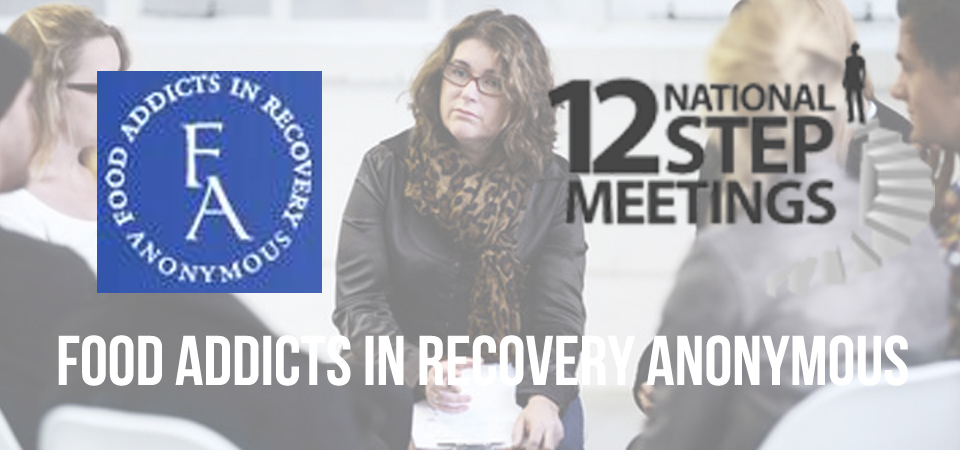
Food Addicts in Recovery Anonymous (FA) is a twelve step program, based on the principles of Alcoholics Anonymous.
National 12 step meetings and Anonymous Groups is a growing repository of meeting data for all well-known established 12 step groups. From coast-to-coast in the USA, this is a growing and free resource to update meetings for all anonymous 12 step groups. The purpose is simple. Provide necessary logistics via maps, precisely the location of a community of people seeking recovery in a private setting. Often times, there isn’t one resource that compiles the meeting locations for all groups, thereby making attendance quite difficult and threatening to one’s recovery. We hope that with your participation, we collectively are able to achieve this goal. 12 Step National Meetings is operated by Sober Group LLC, whose focus, passion, and reason for being resides in our commitment to help addiction treatment and sober living entities grow and thrive in the digital world. Our job is to create relevant and lasting connections between treatment professionals and the clients who seek them.Food Addicts in Recovery Anonymous (FA) is a 12-step group that provides support and guidance to those who struggle with food addiction. Food addiction is a serious problem that affects many people, and FA offers a supportive community to help individuals achieve and maintain long-term recovery.
History of Food Addicts in Recovery Anonymous
FA was founded in 1998 by Kay Sheppard, who had struggled with food addiction herself. Sheppard had been in recovery for several years and had been attending other 12-step groups, but found that the programs did not address the specific issues that she faced as a food addict. With the help of others who shared her struggle, she developed the program that is now known as FA.
FA is based on the principles of Alcoholics Anonymous (AA), but the program is tailored specifically to food addiction. Members of FA follow a program of recovery that includes working through the 12 steps, attending meetings, and building a supportive community.
The 12 Steps of FA
The 12 steps of FA are based on the principles of AA, but have been modified to address the specific issues of food addiction. The steps are as follows:
We admitted we were powerless over food – that our lives had become unmanageable.
Came to believe that a power greater than ourselves could restore us to sanity.
Made a decision to turn our will and our lives over to the care of God as we understood Him.
Made a searching and fearless moral inventory of ourselves.
Admitted to God, to ourselves, and to another human being the exact nature of our wrongs.
Were entirely ready to have God remove all these defects of character.
Humbly asked Him to remove our shortcomings.
Made a list of all persons we had harmed, and became willing to make amends to them all.
Made direct amends to such people wherever possible, except when to do so would injure them or others.
Continued to take personal inventory and when we were wrong promptly admitted it.
Sought through prayer and meditation to improve our conscious contact with God as we understood Him, praying only for knowledge of His will for us and the power to carry that out.
Having had a spiritual awakening as the result of these steps, we tried to carry this message to food addicts, and to practice these principles in all our affairs.
The FA program encourages members to work through the steps with the help of a sponsor – a more experienced member who can provide guidance and support.
Meetings and Fellowship
FA meetings provide a supportive community for members to share their experiences, strength, and hope. Meetings are held in person, online, or over the phone, and are open to anyone who wants to recover from food addiction. There are no dues or fees to attend FA meetings, and anonymity is respected.
At meetings, members share their personal stories, discuss their struggles and successes, and offer support to one another. The meetings provide a safe space for members to talk openly about their addiction and their recovery, and to connect with others who understand what they are going through.
The FA program also encourages fellowship outside of meetings. Members are encouraged to connect with each other, build friendships, and support each other in their recovery. The program offers social events and activities to help members build a sense of community.

